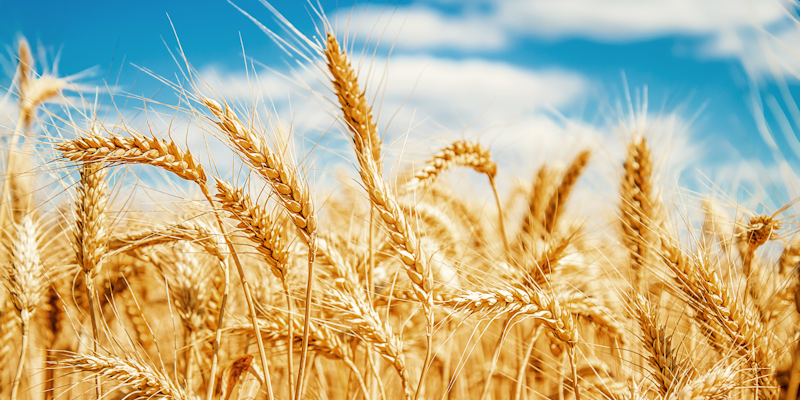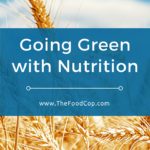Going Green with Nutrition!
Celebrating Earth Day in April…
“There’s so much pollution in the air now that if it weren’t for our lungs, there’d be no place to put it all.” Robert Orben
Are you aware that your daily food choices have an impact on the environment? Pesticide use on farms, food packaging, and gasoline used for transporting food all contribute to the health of our planet – our land, air, and water quality that we take for granted every day. The very first Earth Day, which was held on April 22, 1970, led to the passage of the Clean Air Act, the Clean Water Act, the Endangered Species Act, and many other environmental laws since then. The EPA (Environmental Protection Agency) was also created as a result of the first Earth Day.
Mother Earth still needs our help though, and following are some simple tips on how you can contribute:
- Buy directly from farmers. Have you checked out your local farmer’s market or farm? How about joining a CSA (Community Supported Agriculture)? These are great ways to purchase fruit and vegetables, cheese, and even bread products. Buying local cuts down on fuel for shipping, resulting in less pollution. The food also gets to spend more time ripening in the fields, and you get to eat the produce sooner after harvesting. In addition, less food packaging is used, decreasing solid waste. Don’t forget to take your own shopping bags with you!
- Buy organic. Many farmers grow organic crops, therefore reducing the amount of chemicals in your food. Organic crops cannot have pesticides that contain poison applied to them. Animals raised on organic farms cannot be given antibiotics or growth hormones, and they must be raised free-range (farmers must demonstrate that the poultry has been allowed access to the outside). Be sure to look for the USDA Organic seal.
- Buy food in bulk. Many stores sell food in bulk, which reduces solid waste due to less food packaging being used. Examples of food available in bulk include grains, flour, beans, nuts, dried fruit, soup mixes, and cereal. Buying food in bulk can also save you money as well.
- Grow your own. Have you considered starting your own fruit and vegetable garden? When you grow your own food, you not only reduce transportation and packaging costs, but you can also control the amount and types of chemicals used as well. If your garden ends up producing more than you can consume, give it away to your friends and family – they will certainly appreciate it! Have a small space? Try a container garden.
- Drink tap water, or use reusable water bottles. Using disposable water bottles not only adds to your household waste, but the processing, packaging, transportation, and storage of bottled water uses up many of our planet’s resources as well. Buy a reusable water bottle and fill it up with tap water. If you don’t want to consume tap water directly from your sink, there are numerous household water filtration systems available that are inexpensive and easy to install.
- Cook at home more often. The packaging used with fast food and take-out not only contributes to solid waste, but also increases the cost of food and transportation. When cooking at home, prepare more than one meal at a time to conserve energy. Another way to save energy is to use energy-efficient cooking methods, such as steaming, microwaving, and grilling.
Do you struggle with preparing clean, healthy food? Get free instant access to shopping guides, checklists, e-books, & more about clean, healthy eating and edible gardens!


